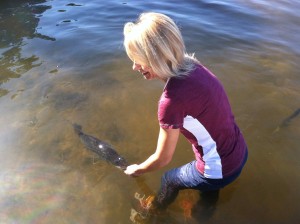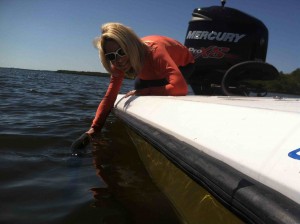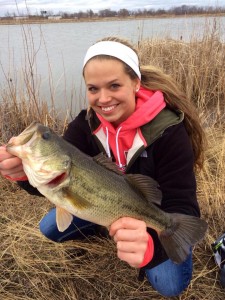Questions to Ask Before Fishing Unfamiliar Waterways
By Debbie Hanson
Apr 07, 2014
Sometimes anglers get a bit overzealous in the quest for a trophy catch or food for the dinner table.
Sometimes anglers get a bit overzealous in the quest for a trophy catch or food for the dinner table. We don't always "stop for a break, before we take" like we should. Most of the time this has nothing to do with anyone meaning any harm, but rather comes from a lack of information. This is especially true when anglers leave their home waters to take a destination fishing trip. Here’s a good example:
In 2010, a deep freeze in the shallow Gulf waters of South Florida took a major toll on fish populations in the area. The unusually cold weather affected snook in particular since they are a species that is highly temperature sensitive. To give you some specific numbers, a snook's comfort range is between 68 degrees Fahrenheit to 78 degrees Fahrenheit. Temperatures below 60 degrees cause snook to become inactive and may result in death. Water temperatures during January 2010 dipped well below 58 degrees into the low 50s.

.jpg)
Now, keep in mind that most sport anglers (including out-of-state visitors) love to catch snook because of the species spectacular fighting ability and high food quality. However, not everyone understood the full impact of the freeze and why the Florida Fish and Wildlife Conservation Commission (FWC) kept snook seasons closed on Florida's Gulf coast for nearly three years. During this time, anglers could still practice catch and release of the species.


Thankfully, many anglers started to ask themselves questions, read the online research and then helped to educate others. Although we are entitled to our individual opinions, we should always educate ourselves on why state regulations are put into place, and then "take a break, before we take."
It's important to follow fishing rules and regulations, but beyond following the rules, certain actions (such as keeping a specific species or handing a fish in a certain manner) may not always be in alignment with our personal values as anglers. It's never going to hurt for us to know more and do better. Keep in mind that regulations are put into effect to promote conservation efforts so that we have healthy fisheries, not to prevent us from catching fish.


Whether we are targeting snook in Florida or bass in Illinois, here are a few questions we can ask resident anglers and ourselves about a particular fishery:
-
Has anything out of ordinary occurred weather-wise or environmentally that may have caused an impact on fish populations in a particular waterway where I plan to fish?
-
If something out of the ordinary has happened, have I reported it or talked to state fish and wildlife officials about the situation?
-
If fish populations are down significantly for any reason, what are the best ways to help ensure a high survival rate for the fish I do catch? Barbless hooks? Circle hooks? Best way to handle and revive the fish?
What other questions would you ask before catching, keeping or handling a fish if you knew the fishery or habitat had been compromised somehow? Comment on this post with your questions and feedback.









